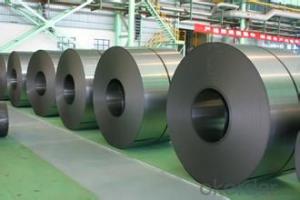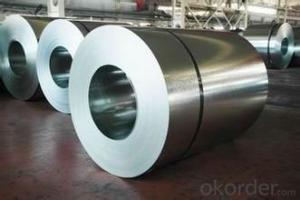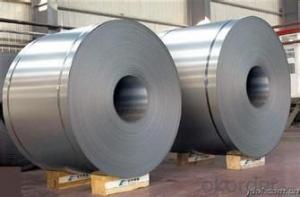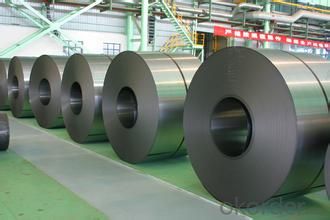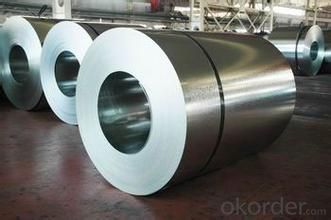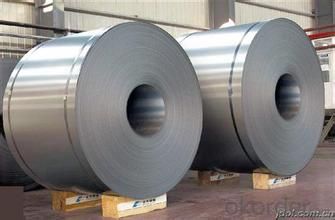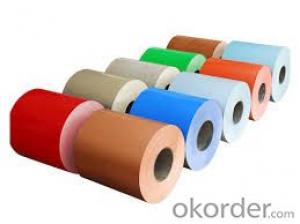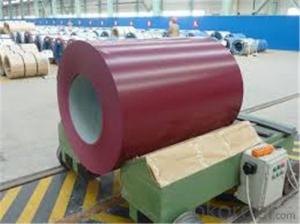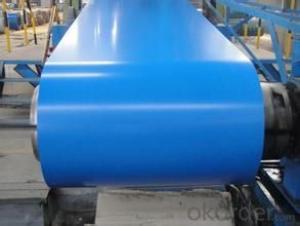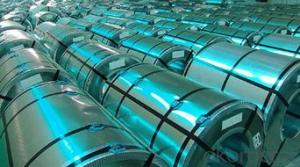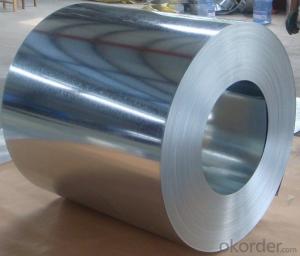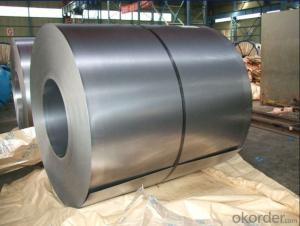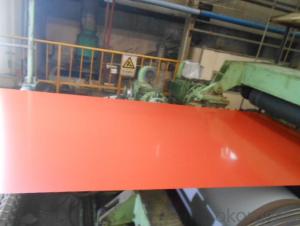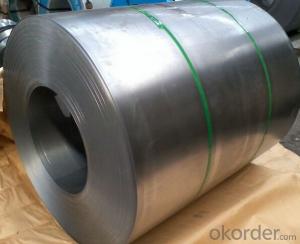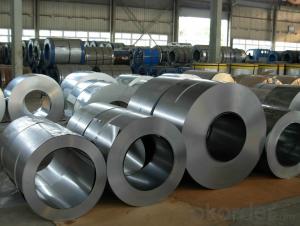Cold Rolled Steel Coil with Good Price of China
- Loading Port:
- Shanghai
- Payment Terms:
- TT OR LC
- Min Order Qty:
- 50 m.t.
- Supply Capability:
- 10000 m.t./month
OKorder Service Pledge
OKorder Financial Service
You Might Also Like
1.Structure of Cold Rolled Steel Description:
The raw material of cold rolled steel coil/sheet is high quality hot rolled product, and after pickling continuous rolling, degreasing, annealing,skin pass,slitting and cut to length line etc. Along with it many kinds of new technology and new process of global cold rolling production have been applied. Therefore the quality of the goods could be guaranteed. The product is widely used in outdoor and interior decoration, furnishing manufacturing, home appliance, automobile etc.
2.Main Features of the Cold Rolled Steel:
• Excellent process capability
• Smooth and flat surface
• Workability, durability
• Excellent heat resistance performance
• High strength
• Good formability
• Good visual effect
3.Cold Rolled Steel Images
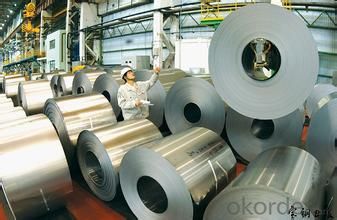
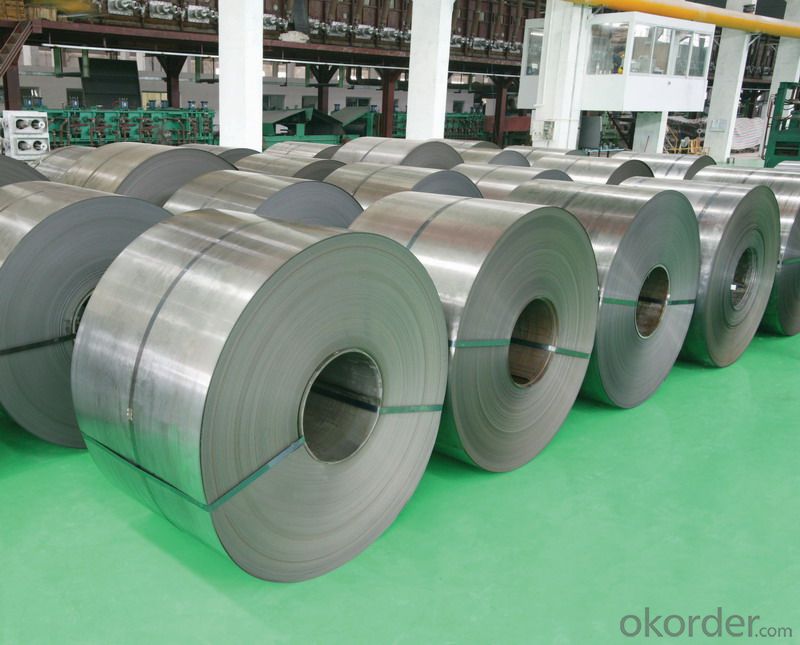
4.Cold Rolled Steel Specification
Standard:AISI,ASTM,DIN,GB,JIS,JIS G3302 ASTM 653M EN10142
Grade: Q195~Q345
Thickness: 0.16mm~1.5mm,0.16-1.5mm
Width: 1250,600-1250mm
Coil weight:3-12 MT
Coil ID:508/610mm
Chemical composition:
C | Si | Mn | Cr | Ni | P | S |
0.150 | 0.476 | 11.231 | 12.50 | 0.900 | 0.039 | 0.010
|
5.FAQ of Cold Rolled Steel
We have organized several common questions for our clients,may help you sincerely:
1.How about your company?
A world class manufacturer & supplier of castings forging in carbon steel and alloy steel,is one of the large-scale professional investment casting production bases in China,consisting of both casting foundry forging and machining factory. Annually more than 8000 tons Precision casting and forging parts are exported to markets in Europe,America and Japan. OEM casting and forging service available according to customer’s requirements.
2.How to guarantee the quality of the products?
We have established the international advanced quality management system,every link from raw material to final product we have strict quality test;We resolutely put an end to unqualified products flowing into the market. At the same time, we will provide necessary follow-up service assurance.
3. How long can we receive the product after purchase?
Usually within thirty working days after receiving buyer’s advance payment or LC. We will arrange the factory manufacturing as soon as possible. The cargo readiness usually takes 15-25 days, but the shipment will depend on the vessel situation.
- Q: What are the limitations of using steel coils in certain applications?
- Steel coils have a few limitations that may restrict their use in certain applications. Firstly, steel coils can be heavy and bulky, making them less suitable for applications where weight reduction is crucial. For instance, in industries such as aerospace or automotive, where lightweight materials are preferred to enhance fuel efficiency and improve performance, steel coils may not be the most suitable choice. Secondly, steel coils are vulnerable to corrosion, especially in environments with high moisture or exposure to chemicals. This limitation can restrict their use in applications where resistance to corrosion is crucial, such as marine or coastal structures. Additional protective coatings or regular maintenance may be required to mitigate this limitation, adding to the overall cost and maintenance efforts. Moreover, steel coils may not possess the necessary flexibility or malleability required for certain applications. In industries such as construction or manufacturing, where materials need to be easily shaped or bent into specific forms, steel coils might not offer the desired level of flexibility. This limitation can lead to difficulties in achieving desired designs or may require additional processing steps to mold the steel coils into the desired shape. Lastly, steel coils can have limitations in terms of their temperature resistance. In high-temperature applications, such as in furnaces or power generation, steel coils may experience thermal expansion or deformation, which can compromise their structural integrity. In such cases, alternative materials with higher temperature resistance, such as refractory metals or ceramics, may be more suitable. Overall, while steel coils are widely used and versatile materials, their limitations in terms of weight, corrosion resistance, flexibility, and temperature resistance can restrict their use in certain applications. It is crucial to consider these limitations and assess the specific requirements of the application when selecting materials for optimal performance and durability.
- Q: What are the common certifications required for steel coils?
- The common certifications required for steel coils include ISO 9001 (Quality Management System), ISO 14001 (Environmental Management System), and OHSAS 18001 (Occupational Health and Safety Management System). Additionally, certifications like ASTM (American Society for Testing and Materials) and EN (European Norm) standards are important for ensuring the quality and compliance of steel coils.
- Q: full discription about hydrolics used in steel melting shop with hyd valve is use in thair circit too ?
- The correct spelling is hydraulics. I haven't heard the term steel melting shop you probably means a foundry or a steel mill The most obvious example i can think of is hydraulic-operated fork lifts. Hydraulic cylinders are used to lift the forks and to tilt them upwards or downwards. The valves are coneccted to levers next to the steering wheel. Hydraulic pressure is supplied by a hydraulic pump driven by a propane or diesel engine. In some forklift designs the wheels are also not connected directly to the engine, but driven by hydraulic motors. There are also a large variety of machines used in steel mills and metalworking companies to cut and shape metal parts. for example, press brakes, plate cutting shears, stamping presses, hole punch machines, drawing presses, etc. These types all operate in much the same basic way. They use a very large cylinder or group of cylinders to apply many tons of force to different kinds of metal working tools.
- Q: This EN10025 S355JR is a European code for steel, of which the properties can be found here.
- Is bether to use this one below! ASTM A588/A588M. Standard Specification for High-Strength Low-Alloy Structural Steel with 50 ksi [345 MPa] Minimum Yield Point , Weather Resistant
- Q: I need to penetrate steel on my car but don't know which bit to use. Are there special bits for steel?
- it's go through steel buddy. But i would imagine that a majority of your standard bits out there will do it. I know there are material specific bits but i would say if you didn't have real expensive drill bits I would try pretty much any of them. If you are talking about the frame of your car or something that thick, then a heavy-duty would be necessary. Don't go drop a lot of money on a diamond bit unless you just keep tearing them up trying to drill through whatever it is you're trying to accomplish. Ive seen wood bits go through some heavy duty metal, so give it a try and save some money.
- Q: What are the common coil diameters available for steel coils?
- The common coil diameters available for steel coils vary depending on the specific industry and application. However, some of the most common coil diameters for steel coils typically range from 24 inches to 72 inches. These diameters are often used in various sectors such as automotive, construction, and manufacturing. It is important to note that the specific coil diameter required may differ based on factors such as the size and weight of the material being coiled, the equipment being used to handle the coils, and the specific requirements of the end-use application.
- Q: what is the history of steel and how did they start making it, i need a link or an answer that is five paragraphs long. plus i need examples of subtitles about the history of steel. i am doing this for a science project and hope that someone can help me out.thanks
- There's wide history of steel, you can read different tutorials online to know more about it. Check wiki for detailed information.
- Q: I completed the missions in broken steel like: the one of the rangers, the one of vault 101, the one of the enclave, and several others.are there any more INTERESTING missions?
- one good mission is stealing independence given in rivet city
- Q: for my engineering project I have been asked to design a method of suspending a TV of weight 14Kg from a gantry, the TV must be 5m below the gantry. My team have decided to use as a suspension method a steel cylinder of outer diameter of 10cm and an inner diameter of 8, however we now need to work out both the max stress and strain and the actual stress and strain. and help would be useful
- In most engineering calculations we have to make some assumptions about ideal behavior of a material otherwise we would not be able to simplify our equations to manageable sizes. Your steel cylinder (which I'll call a pipe) is made of a certain type of steel. That steel type has property tolerances listed in a steel manual to help you know about your steel before you begin. You'll need to know the cross-sectional area of the pipe and the weight of the TV to determine an average stress on the pipe. Obviously the weight of the TV is the force it generates. The force is its mass x gravitational acceleration. Since we typically think of steel as an elastic material, we think of it stretching like a rubber band or a spring. You pull it down with a TV and it deflects a certain amount, and will return to its original length when the TV is removed. It is typical to assume that all steel, regardless of its strength, has the same value for this elastic property. It is commonly referred to as the elastic modulus. This value will help you determine what type of strain occurs under what type of stress. So, once you have the stress, you can get the strain by using the elastic modulus. Once you have the strain you can determine the deflection based on the pipe length. Having the steel properties will help you determine how close your TV comes to stressing the pipe to its yield stress. If you reach a yield stress, your steel will deflect, but when you take the TV off it will not return to its original shape. I hope I've helped outline some of the things you'll need to do for the project, I tried not to give away specifics so that you can actually engage your brain around the project. Enjoy, learn a lot, and realize that this skill could easily turn into a career where you are designing projects that when done correctly save people's lives every day of the year.
- Q: How are steel coils used in the production of consumer goods?
- Steel coils are used in the production of consumer goods as they are processed and shaped into various components, such as sheets, tubes, and wires. These components are then utilized in manufacturing a wide range of products, including automobiles, appliances, furniture, and construction materials. The high strength and durability of steel make it an ideal material for consumer goods, ensuring their longevity and performance.
Send your message to us
Cold Rolled Steel Coil with Good Price of China
- Loading Port:
- Shanghai
- Payment Terms:
- TT OR LC
- Min Order Qty:
- 50 m.t.
- Supply Capability:
- 10000 m.t./month
OKorder Service Pledge
OKorder Financial Service
Similar products
Hot products
Hot Searches
Related keywords
